Some may have the mistaken belief that diving is simply putting on a mask, fins, and diving with an oxygen tank. No, friends, diving is a thrilling universe full of challenges, skills to perfect, and, of course, courses through which to climb in knowledge and abilities.
In this article, we review all existing levels of diving as well as how to achieve them with their respective certifications. By the way, you can complete all of them with DPM Diving at any of our five diving schools spread across the globe.
Contents
Dive into the world of diving
From recreational practice to the professional realm. Diving offers different levels as milestones to achieve. It’s an adventure in which, once you enter, it’s hard to leave. And we say this because of how fascinating the world of diving can be. Every year, thousands of divers around the world get accredited and continue their learning process.
Let’s not forget that diving is a practice that combines physical and emotional benefits. After all, diving increases cardiovascular endurance, strengthens muscles, and improves flexibility. Mentally, diving fosters concentration and focus, as it requires attention to detail and management of variable situations. Additionally, immersing oneself in underwater environments provides a sense of peace and connection with nature, contributing to emotional well-being and stress reduction.
Are you brave enough too? Pay attention to the different certification levels.
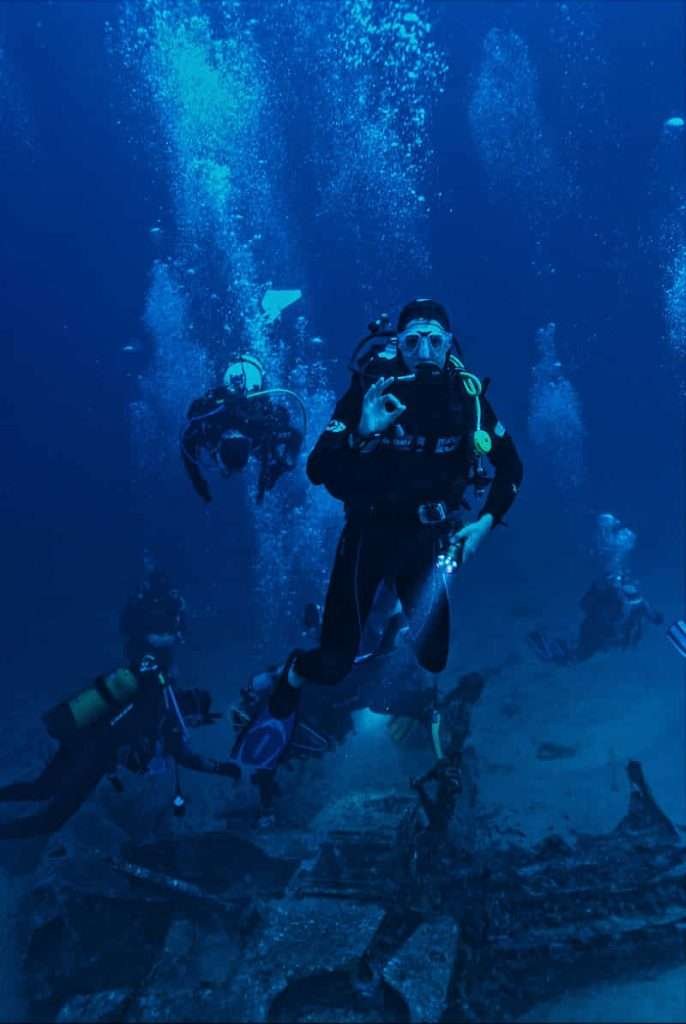
Diving Certifications: From Beginner to Instructor
Diving certifications serve to certify that an individual has successfully completed a diving training program, demonstrating that they possess the skills and knowledge necessary to dive safely. These certifications are essential for participating in organized diving activities and for renting diving equipment in many destinations. Additionally, diving certifications also indicate a level of experience, which can be important when planning more advanced dives or even for pursuing a career in diving.
Below, we detail the most important diving certifications.
Discover Scuba Diving
An introduction to diving, often conducted in shallow waters with an instructor. It does not imply a formal certification and provides a good opportunity to try diving in a real environment. It’s also a fun practice, accessible to everyone.
Open Water Diver
The SSI Open Water Diver course is the gateway to the exciting world of diving. Designed for beginners, it provides the essential skills and knowledge to dive safely. Through theoretical sessions, pool training, and open water diving experiences, participants learn fundamental techniques, basic equipment, and safety principles. Upon successfully completing the course, divers obtain the Open Water Diver certification, allowing them to explore the oceans with confidence.
Advanced Open Water Diver
The Advanced Open Water Diver certification is a further step in underwater exploration. Designed for certified divers, the program offers learning experiences in open water, including specialties such as navigation, deep diving, and underwater photography. With five exciting dives, participants improve their skills, gain confidence, and broaden their understanding of diving. This certification opens up new possibilities for underwater adventures, allowing divers to explore diverse environments safely and with advanced knowledge.
Rescue Diver
The Rescue Diving course is essential for those who want to develop advanced water rescue skills. Designed for certified divers, it focuses on the prevention and management of underwater emergency situations. Participants learn rescue techniques, first aid, and decision-making under pressure. This course challenges and refines existing skills, providing the confidence needed to effectively respond in critical situations, becoming safer and more responsible divers.
Divemaster
The Divemaster course is the next step for divers who want to lead and guide others. Designed to refine diving and leadership skills, this program addresses group management, problem-solving, and supervision techniques. Participants gain knowledge in diving theory and develop practical skills while working alongside professional instructors. Becoming an SSI Divemaster opens up opportunities for careers in the diving industry, guiding others on exciting underwater adventures.
Dive Instructor
Allows you to teach and certify new divers, allowing you to pursue a professional career in diving. In other words, you can dedicate yourself to your passion for the underwater world. It includes specific training courses to become a certified instructor.
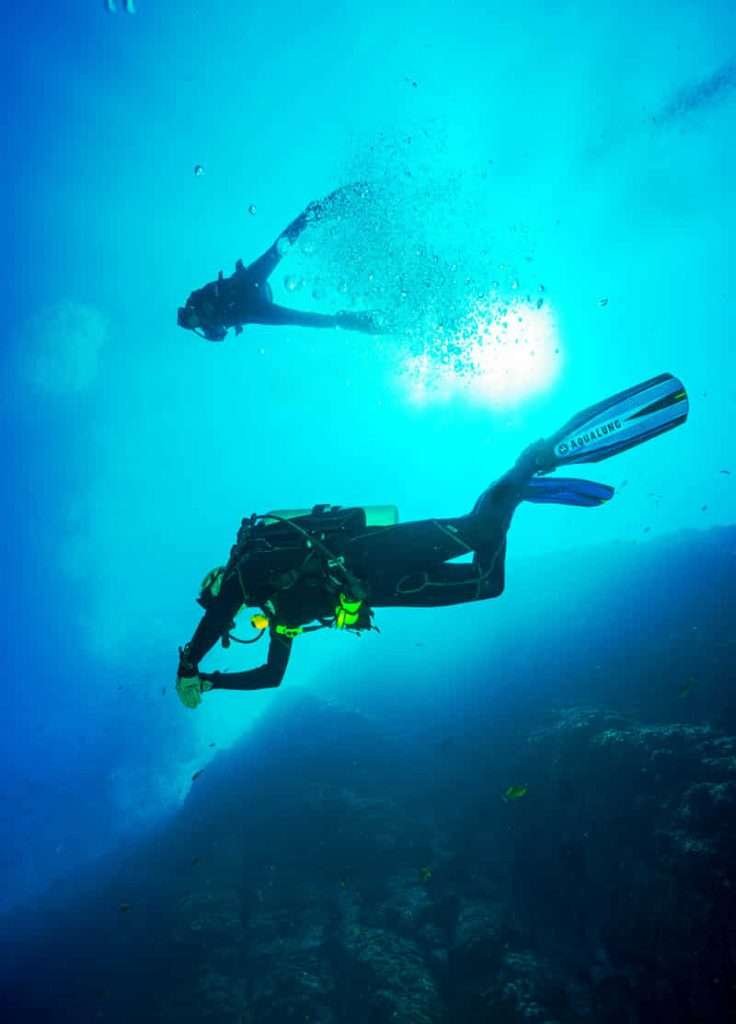
Recognized Diving Certifications
Diving certifications are issued by professional associations, which can be international or regional. There are hundreds of them, and each country usually has several. However, globally, the most recognized and therefore the ones that accredit the most divers each year are:
SSI (Scuba Schools International)
Founded in 1970, SSI offers certification programs ranging from beginner to advanced levels. It is known for its digital teaching system and flexible approach, allowing students to learn at their own pace, whether through face-to-face classes, online learning, or a combination of both. All DPM Diving courses are certified by SSI, making them our trusted partner.
PADI (Professional Association of Diving Instructors)
It is one of the largest and most recognized diving organizations. It offers certifications from Open Water Diver level to advanced, rescue, and instructor levels. The PADI certification is widely accepted and respected in the diving community, allowing certified divers to explore exciting underwater destinations and participate in various water activities with confidence and safety. PADI also plays an active role in promoting marine conservation and environmental awareness among its members, contributing to the preservation of underwater ecosystems.
How to Obtain the First Diving Level: Open Water
First, locate a diving school that instills confidence and stands out for its professionalism.
At DPM Diving, we offer the Open Water course through the official SSI certification. The course consists of 3 intensive days with the following structure:
- Day 1: Class + training session in the pool or confined waters (shallow depth)
- Day 2: Class + 2 dives (maximum depth of 12 meters)
- Day 3: 2 dives (maximum depth 18 meters) + Exam
Once the exam is passed, the student will have obtained their official certification allowing them to dive anywhere in the world.
Tips for Diving Enthusiasts
And finally, we put on our professional hats and leave you with some very useful tips if you have already been hooked by the exciting world of diving.
- Continue your education and acquire additional certifications. This will not only enhance your skills but also allow you to access more advanced diving locations.
- Maintain good physical condition. Diving can be demanding, and being in shape improves your endurance and comfort underwater.
- Familiarize yourself with your diving equipment and ensure it is in good condition. Perform regular checks and, if necessary, carry out proper maintenance.
- Plan your dives in advance. Check the conditions of the site, the weather, and visibility before diving.
- Dive with a buddy whenever possible. Diving in pairs enhances safety and allows mutual assistance in case of need.
- Hone your buoyancy control skills. Maintaining neutral buoyancy is essential to protect the marine environment and improve your diving experience.
- Respect marine life and avoid touching or disturbing underwater organisms. Stay at a safe distance and follow sustainable diving best practices.
- Ensure you are fit to dive and update your medical certification as necessary.
- Stay informed about local regulations and marine conditions. Respect regulations and follow local recommendations.
Do you also want to enter the world of diving and obtain official certifications? At DPM Diving, we offer courses tailored to all levels, from beginners to advanced. Remember that we have a professional top-notch team to ensure that you not only get your certification but also enjoy the process almost as much as we enjoy this passion for the ocean.

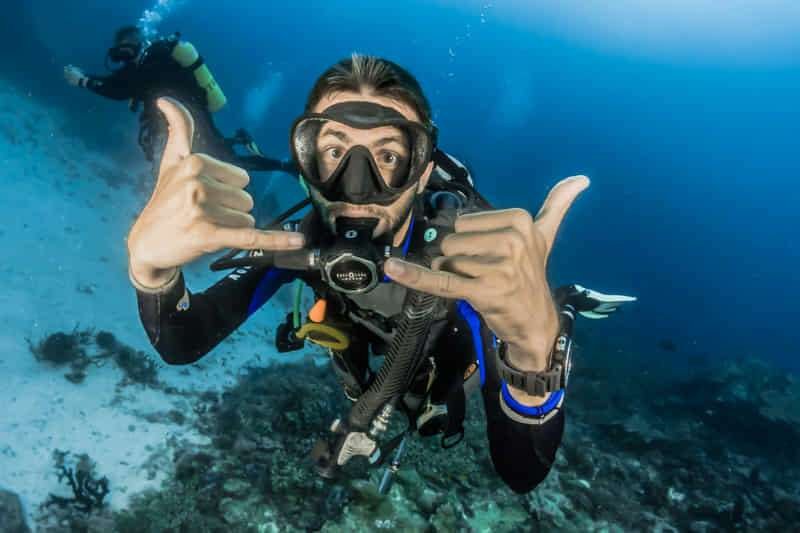

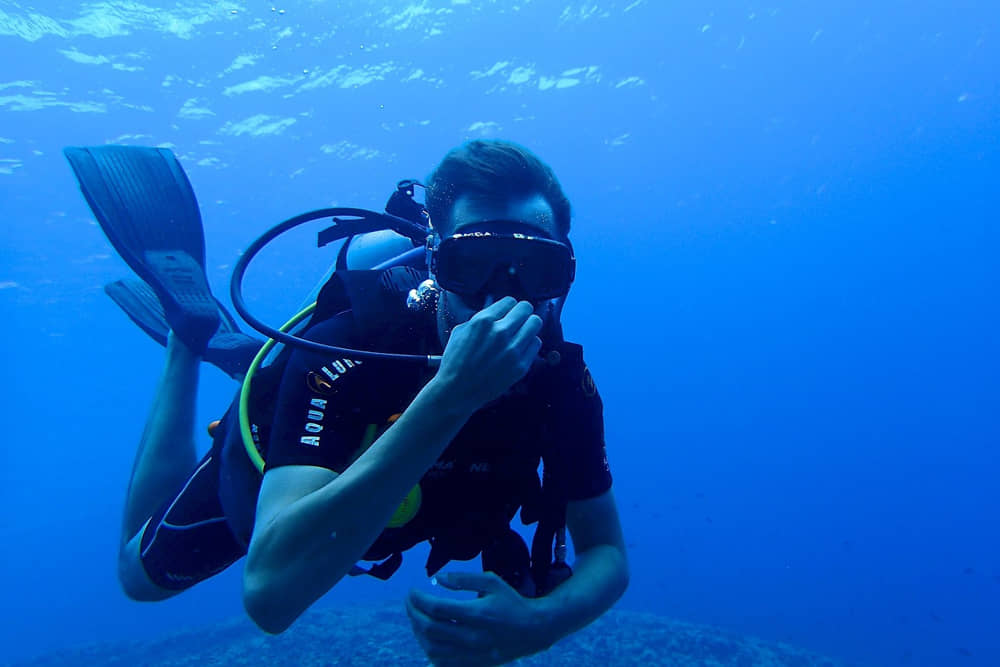
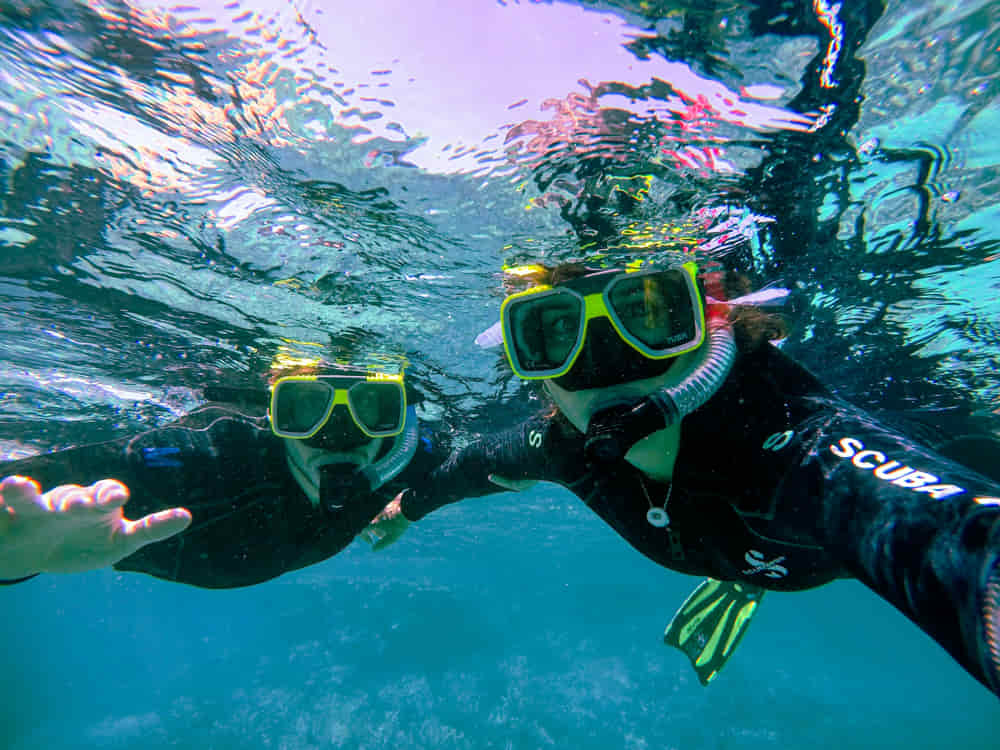
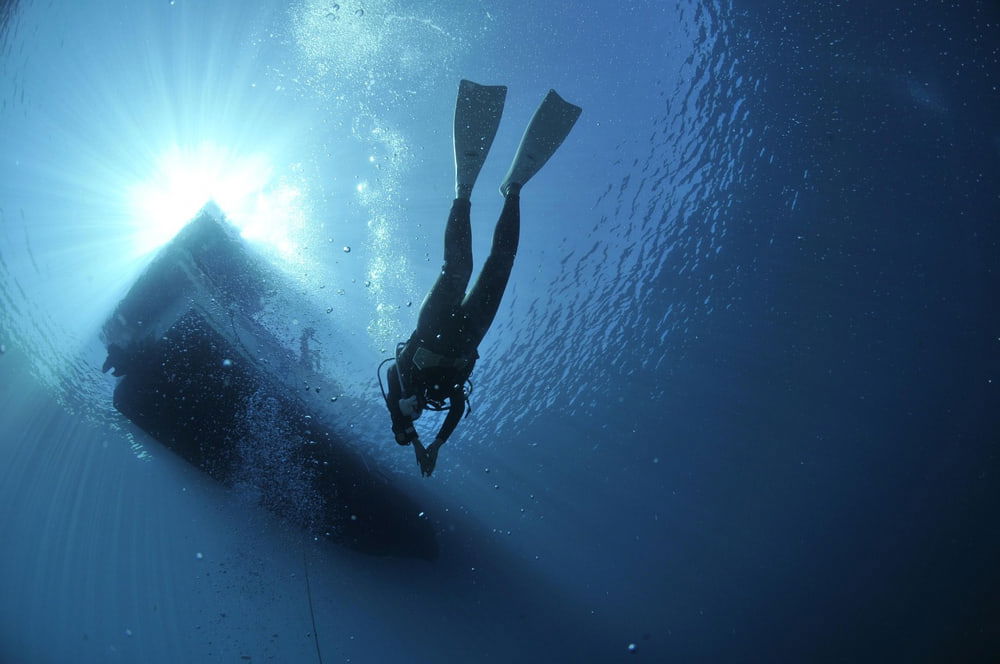

0 Comments